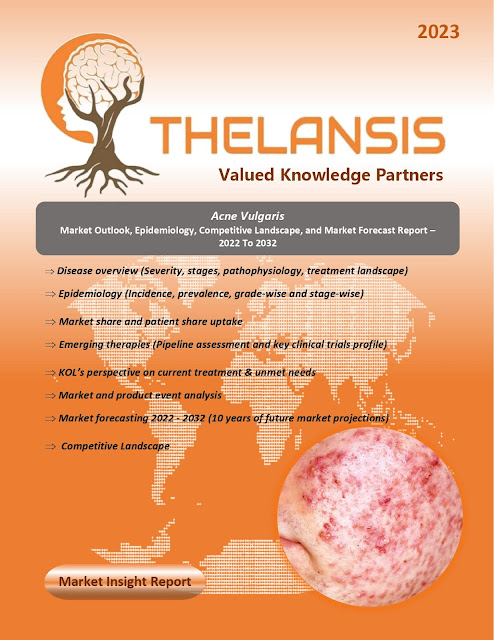Esophageal Cancer – Market Outlook, Epidemiology, Competitive Landscape, and Market Forecast Report – 2021 To 2032
Esophageal cancer is the seventh leading cause of death in males in the United States (US). Squamous cell carcinoma is the most common histology for esophageal cancer worldwide; however, in the US, adenocarcinoma is the most predominant histology. Early-stage esophageal cancer may be totally asymptomatic or may present with mild nonspecific symptoms such as heartburn, atypical chest pain, or dyspepsia. Alternatively, patients may present with symptoms such as occult blood in the stool or iron deficiency anemia. Patients may report mild or intermittent dysphagia, odynophagia, or a foreign body sensation. These symptoms generally warrant the diagnostic evaluation, including an esophagogastroduodenoscopy (EGD) (upper endoscopy) including a diagnostic mucosal biopsy. Some early cancers are diagnosed during routine upper endoscopic surveillance for Barrett’s esophagus. The symptoms of esophageal cancer generally progress rapidly.
·
The overall incidence of esophageal cancer
ranges between 4.7 to 5.8 per 100,000 people per year. Males had a higher
incidence of EC than females.
Thelansis’s “Esophageal Cancer Market
Outlook, Epidemiology,
Competitive Landscape, and Market Forecast Report – 2021 To
2032" covers disease overview, epidemiology, drug utilization,
prescription share analysis, competitive landscape, clinical practice,
regulatory landscape, patient share, market uptake, market forecast, and key
market insights under the potential Esophageal Cancer treatment modalities
options for eight major markets (USA, Germany, France, Italy, Spain, UK, Japan,
and China).
KOLs insights
of Esophageal Cancer across the 8 MM market from the centre of Excellence/
Public/ Private hospitals participated in the study. Insights around current
treatment landscape, epidemiology, clinical characteristics, future treatment
paradigm, and Unmet needs.
Esophageal Cancer Market Forecast Patient
Based Forecast Model (MS. Excel Based Automated Dashboard), which Data Inputs
with sourcing, Market Event, and Product Event, Country specific Forecast
Model, Market uptake and patient share uptake, Attribute Analysis, Analog
Analysis, Disease burden, and pricing scenario, Summary, and Insights.
Thelansis Competitive Intelligence (CI) practice
has been established based on a deep understanding of the pharma/biotech
business environment to provide an optimized support system to all levels of
the decision-making process. It enables business leaders in forward-thinking
and proactive decision-making. Thelansis supports scientific and commercial
teams in seamless CI support by creating an AI/ ML-based technology-driven
platform that manages the data flow from primary and secondary sources.




Comments
Post a Comment